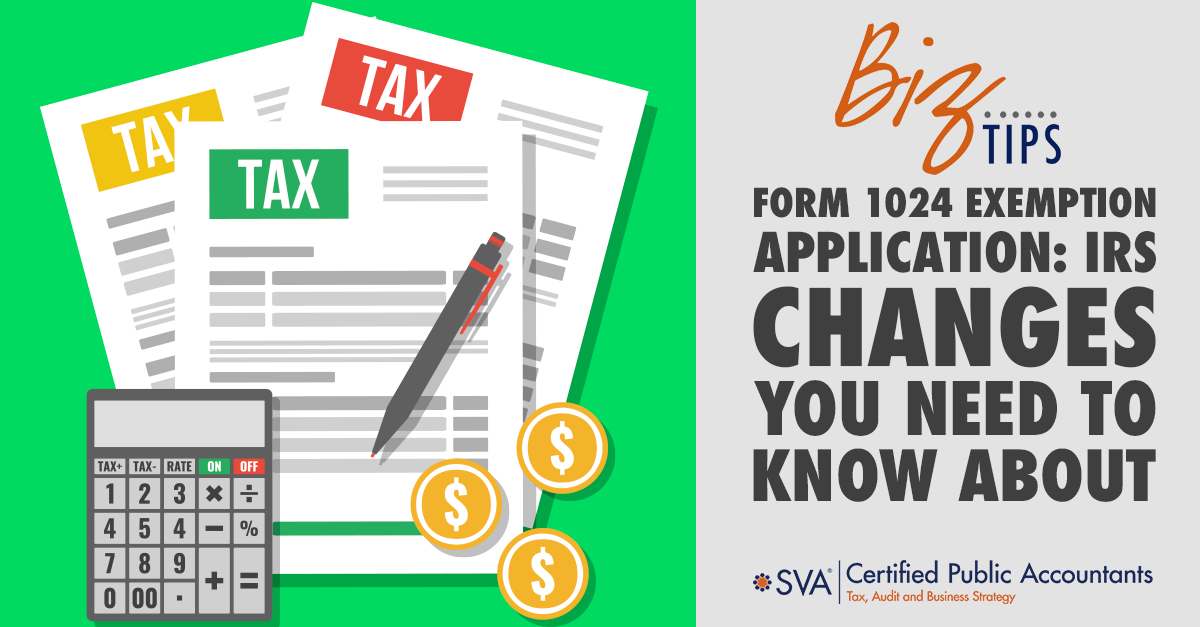| Highlights: |
- Summarizes recent IRS updates requiring most 501(c) organizations (except 501(c)(3), 501(c)(4), and 501(d)) to use Form 1024 for tax-exempt status applications and file electronically via Pay.gov.
- Explains that Form 1024 serves as the Application for Recognition of Exemption under IRC Section 501(a) or Section 521, expanding the scope of nonprofits that must use it.
- Clarifies which nonprofits still use other forms (e.g., Form 1023/1023-EZ for charities and Form 1024-A for social welfare organizations) and the impact of electronic filing mandates.
- Highlights practical implications of the rule change, including reduced errors and faster IRS processing times due to the shift to required electronic submission.
|
The Internal Revenue Service (IRS) has made several changes recently, changes which impact a range of 501 organizations, expanding the use of Form 1024 to all of the organizations which are described under IRS code Section 501(c), except for 501(c)3, 501(c)4, and 501(d) organizations when applying for tax-exempt status.
But what does this mean and how will it impact how these organizations operate? Let's take a closer look at this regulation change so that you can have a solid grasp of how it will impact your organization.
Changes to Form 1024 Exemption Application
As of January 3, 2022, any applications for exemption recognition must be made on Form 1024, which must now be submitted at Pay.gov electronically. This form is also known as the Application for Recognition of Exemption Under Section 501(a) or Section 521 under the Internal Revenue Code. With electronic submission now permitted, the government also requires that filing happen electronically.
As mentioned above, other than 501(c)3, 501(c)4, and 501(d) organizations, all organizations described in Section 501(c) must now use the electronic form. Organizations that are subject to this type of requirement include chambers of commerce, labor organizations, trade associations, social clubs, fraternal organizations, and agricultural organizations, as well as voluntary employee benefit associations (VEBAs). Similar to the requirement made for Form 990, applications for tax exemption now need to be filed electronically.
So where does this leave charitable organizations and social welfare programs?
- Charities that fall under tax-exempt status underneath the Section 501(c)3 regulations will continue to use either Form 1023 or Form 1023-EZ.
- Similarly, social welfare organizations that fall under Section 501(c)4 will continue to file for their tax-exempt status using Form 1024-A, while submitting Form 8976 within 60 days of which the formation occurs for the organization.
All forms can be submitted electronically, and when required, must be submitted electronically.
The IRS has made this shift to make it easier for organizations to complete their application for tax-exempt organization status by using an electronic filing process. Because the electronic filing shortens the IRS processing time significantly, applications will not have to wait as long to be approved, making it easier for these nonprofit organizations to focus on their mission rather than their filing status. At the same time, this process reduces errors, which are caught early on by the IRS computer system, so that time spent sending paperwork back and forth is also drastically reduced.
If your organization has been in the process of submitting your Form 1024 on paper, the IRS has allowed a 90-day grace period. During that timeframe, the IRS will continue accepting both paper copies of Form 2024 (Rev. 01-2018) as well as letter-form applications. Organizations that are requesting a determination under Section 521 are also able to use the electronic version of Form 1024 rather than Form 1028, also known as the Application for Recognition of Exemption Under Section 521 of the Internal Revenue Code.
Even as inflation continues to eat away at nonprofit organization budgets, the user fee required for Form 1024 is currently set to remain at $600, which is due at the time that the form is submitted. However, with several bills in front of Congress, there's every possibility that the fee schedule could change, so it may be better to make arrangements sooner rather than later. President Biden's administration has changed programs believed to be set in stone in the past, and may decide to go through that approach in the future.
If you have any questions on this new regulation change, please contact SVA.
© 2022 CPAContentPlus

